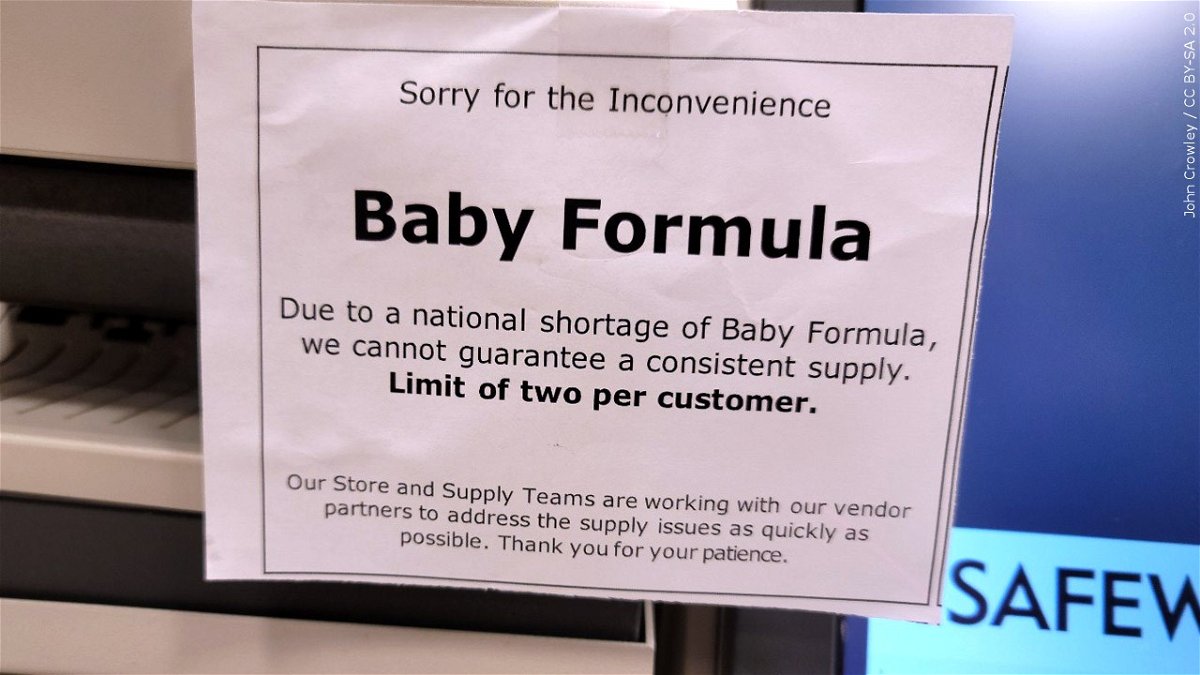The baby formula supply problem is getting worse

(CNN) - For months stores nationwide have been struggling to stock enough baby formula.
Manufacturers say they're producing at full capacity and making as much formula as they can, but it's still not enough to meet current demand.
The out-of-stock rate for baby formula hovered between 2% and 8% in the first half of 2021, but began rising sharply last July.
Between November 2021 and early April 2022, the out-of-stock rate jumped to 31%, data from Datasembly showed.
That rate increased another 9 percentage points in just three weeks in April, and now stands at 40%, the statistics show.
In six states — Iowa, South Dakota, North Dakota, Missouri, Texas and Tennessee — more than half of baby formula was completely sold out during the week starting April 24, Datasembly said.
And although seven states had between 40-50% of baby formula products out of stock as of early April, 26 states are now struggling with supply.
"This issue has been compounded by supply chain issues, product recalls and historic inflation," Datasembly CEO Ben Reich said.
"Unfortunately, given the unprecedented amount of volatility to the category, we anticipate baby formula to continue to be one of the most affected products in the market."
CVS and Walgreens confirmed that it is limiting customers nationwide to three toddler and infant formulas per transaction.
"We continue to work diligently with our supplier partners to best meet customer demands," Walgreens said in a statement to CNN Business.
A Target spokesperson confirmed that the retailer has limited baby formula purchases to four units per customer for online purchases.
There is no limit on the number of units that can be bought in person in Target stores, the company said.
Customers shared images on social media of Walmart imposing similar constraints on its sales of baby formula, though Walmart did not confirm if it was a nationwide policy.
Images shared with CNN Business show empty shelves where baby formula should be, and a sign saying only five units were allowed per customer.
Walmart did not immediately respond to a request for comment from CNN Business.
The shortage has been exacerbated by the Food and Drug Administration's shutdown of an Abbott Nutrition facility in Sturgis, Michigan.
Abbott is a major producer of baby formula.
In February, the US Food and Drug Administration recalled three brands of powdered baby formulas made by the company due to potential bacterial infections, including Salmonella.
The agency advised parents not to buy or use certain batches of Similac, Alimentum and EleCare powdered infant formulas, all Abbott brands.
A former employee of Abbott Nutrition filed a whistleblower complaint with the FDA months before the recall, documenting their concerns that the company was hiding safety problems at its Sturgis, Mich. plant.
The formulas manufactured at the facility were recalled after four infants drinking it had fallen ill with rare infections caused by Cronobacter sakazakii bacteria.
Two infants died, the complaint said.
The Abbott spokesperson noted that the recall affected only batches of formulas produced at and distributed from its Sturgis, Mich. facility, and said that no other products that Abbott distributes had so far tested positive for Salmonella or other pathogens.